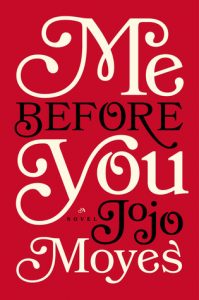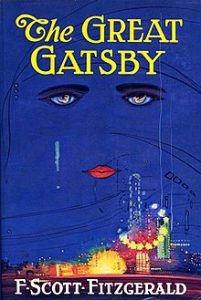Creating a Soundtrack for Your Next Read
Jonathan Smith//Blog Writer
Ever since I began investing five dollars a month into a monthly music subscription, I have listened to an extraordinary amount of music, perhaps even an unhealthy amount. Though preferences vary greatly from person to person, there is something unequivocally energizing about music. Until recently, I attempted to avoid distractions whenever reading: the television couldn’t be on, there couldn’t be people talking loudly in the background, couldn’t be any keyboard clicks. But, after taking advice from a friend, I realized that curating a playlist for certain books and short stories could not only heighten the reading experience, but also allow one to view characters from an entirely different perspective.

Major motion pictures are often accompanied with an album-length soundtrack, with most of the songs relating to the story in some manner. For example, the recently released Black Panther was accompanied by music from artists such as Kendrick Lamar, The Weeknd, and SZA. When I saw the film, there was a tremendous liveliness from the audience when The Weeknd and Kendrick Lamar’s “Pray for Me” segued into the casino scene. The audience became even more invested in the story; it was noticeable. I hear the same effect often occurs with the movie adaptation of JoJo Moyes’s Me Before You, which featured tracks from Ed Sheeran and X Ambassadors. But why is it that books are not considered as pliable with soundtracks as movies?
Perhaps the issue at hand is due to the length and unpredictability of books. When one goes to the movies, he or she is viewing a product with a carefully crafted soundtrack that has been selected by people who already know what is to come of the story. A standard album might be the equivalent to the time required to read one chapter in a book, and it may be too tedious to keep the playlist on repeat. But an exercise I find intriguing is attempting to predict what is to unravel in a story by creating a related playlist. For example, if one suspects a protagonist is being cheated on and is about to find out, one could create a playlist made of songs like Timbaland’s “Apologize” featuring OneRepublic. It is often said that the nuances an author brings to difficult topics makes literature worth reading; music can only add to this effect.

Of course, a soundtrack does not have to be created before finishing a book for it to be successful. I often find that, when writing papers for literature classes, it is easier to analyze a story while listening to music related to the themes it embodies. This is often easier said than done when writing essays for, say, an early nineteenth-century gothic novel, but it is certainly accessible for more modern works. An obvious example of this is playing jazz when reading or analyzing F. Scott Fitzgerald’s The Great Gatsby. Combining jazz and Prohibition—as they were intertwined in the 1920s—is undoubtedly satisfying.
Listening to music that reflects a story’s message is by no means a new concept, but it can offer a new way of understanding why certain characters act and feel the way they do. It can establish an atmosphere on which to further ground the story. The best stories often resonate with readers and are emotional by nature; music acts in much the same way. Combining these two forces entices a reader to push onward, synthesizing information in a novel manner.
